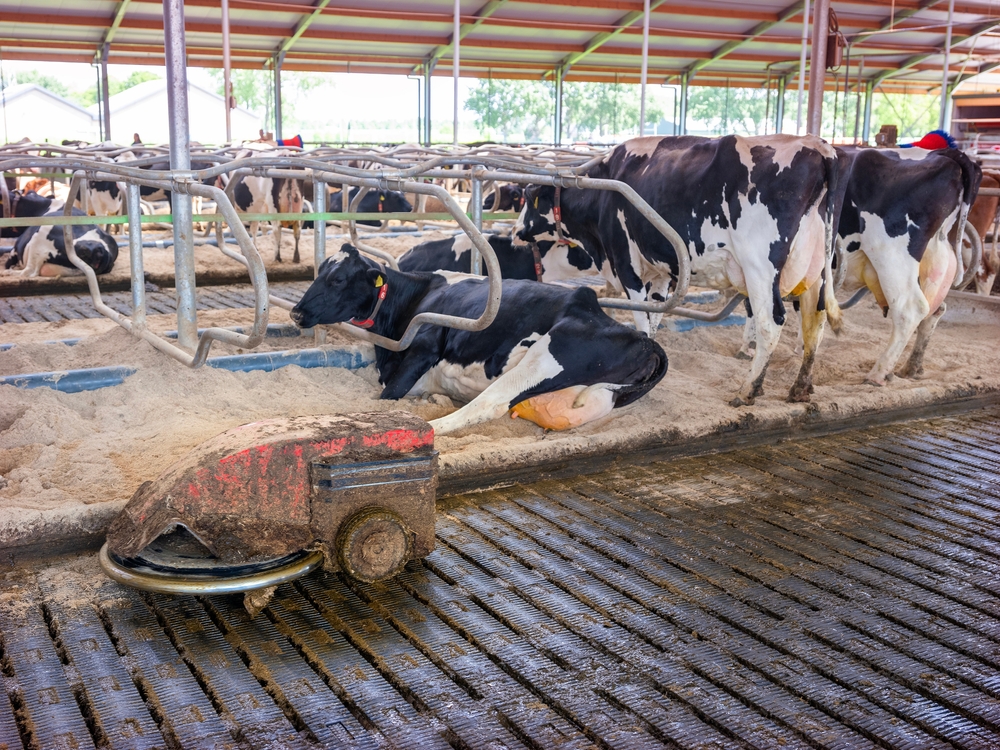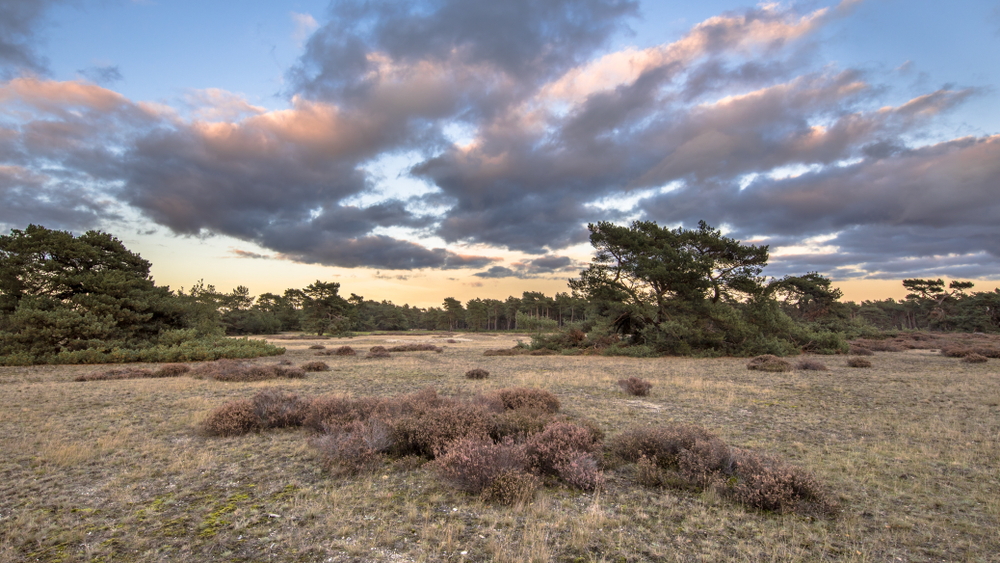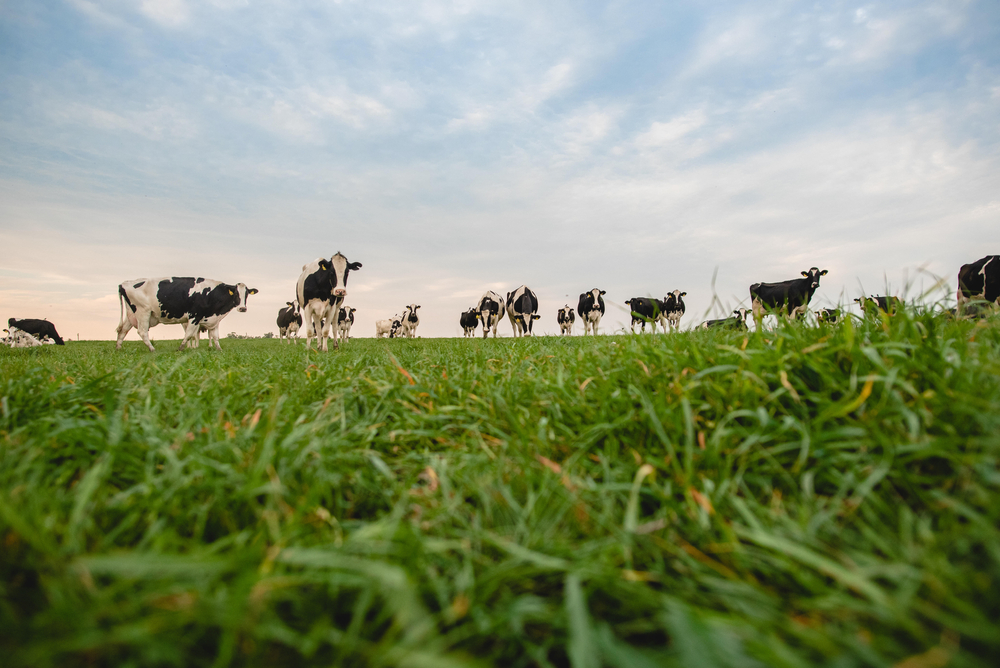Wageningen nitrogen experts were surprised when Minister Wiersma announced last month that the cabinet would end the National Rural Areas Programme (Dutch: Nationaal Programma Landelijk Gebied -NPLG), which addresses nitrogen and water quality issues. Resource asked several experts to share their views on how this may impact their domain. In this episode, Karin Groenestein, a senior researcher in livestock farming and the environment.
Groenestein says that letting go of the area-specific approach has a limited impact on her research domain. ‘Although there is now a renewed focus on source-driven measures, and new research questions on reducing emissions from barns and manure storages have emerged.’
Renewed interest
Low-emission barn floors appear to have fallen out of favour since the Council of State’s 2022 ruling that they don’t always provide sufficient grounds to grant farmers a nature permit. The floors have now sparked renewed interest because if the minister chooses goal-steering, farmers are free to determine how they wish to achieve their emission goals. A low-emission barn floor is one of the options available to farmers.
‘I believe this is what farmers will want since these floors have already been installed’, Groenestein responds. ‘However, my colleagues and I have recently assessed the efficacy of these systems from a different perspective at the minister’s behest. We are unable to determine that the floors reduce emissions of bovine manure. This supports conclusions previously drawn by the CBS.’
Positive
That is not due to the floors as such, Groenestein clarifies. ‘If a barn floor is kept clean, you may assume there will be fewer emissions. However, practical examples paint a different picture.’ She and her colleagues investigated why. ‘There were issues explaining why this doesn’t work throughout the system, from application to enforcement.’
The barn builders painted a rather positive picture of their barn systems
‘Pointing fingers at farmers is too easy, but there is currently zero incentive for farmers to ensure a low-emissions floor works as intended’. No one cares about the floor once a business has been granted a nature permit. Most farmers are willing, but you can’t blame them for not prioritising something that barely benefits them. Moreover, in all likelihood, most farmers aren’t even aware of all the details of the floor’s functioning. The barn builders painted a rather positive picture of their barn systems at the time.’
Gordian knot
The persisting lack of perspective from politicians is what concerns Groenestein. ‘The nitrogen issue is becoming a Gordian knot, and unnecessarily so. Farmers, most of them at least, are willing to move. I am frustrated over the fact that the industry of doubt has succeeded in delaying the whole thing to the extent that there are still no solutions. The fact that politicians allowed this to happen is a real shame.’
The term ‘industry of doubt’ refers to a recent NRC article that reconstructed how an American researcher and other stakeholder scientists used doubt as an instrument to prevent the Dutch government from intervening in the nitrogen dossier. Shortly afterwards, the TV show Zembla showed how an American statistician served as a merchant of doubt in the European extension for the use of glyphosate.
Industry of doubt
‘I sincerely hope that the industry of doubt has become obsolete now that its methods have been exposed. We were also affected. For example, we were required to have the NEMA model, which we use to calculate national emissions, go through an extra international reviewing trajectory because the industry of doubt kept claiming the model was incorrect. We have already collaborated internationally to harmonise and improve such models. The review concluded that the model was good, so it was much ado about nothing. But meanwhile, it caused much frustration. That is what I believe the tactic to be: cause doubt and delay, delay, delay. To cash out.’
‘This framing, which claims your work is of poor quality and your models are wrong, is very tiresome for scientists. Some people even had their integrity questioned, which is very hurtful to researchers. Some colleagues really suffered as a result. We do not conduct research for our personal financial benefit; we don’t care what the findings show. Science thrives off doubt, but the fact that some parties use that as a point of departure vexes me. Especially because it harms people.’
Nitrogen series
Episode #1 – ‘I believe the minister’s strategy is risky’ with Roel Jongeneel
Episode #2 – ‘Goal steering does not make nitrogen reduction easy all of a sudden’ with Edo Gies
Episode #3 – ‘The industry of doubt has hopefully become obsolete’ with Karin Groenestein
Episode #4 – ‘I expect the feed option to be brought back to the table’ with Jan Dijkstra
Episode #5 – ‘The funds are depleted, so we need smart solutions’ with Gerard Migchels
Episode #6 – ‘Let’s start goal-steering through a relatively simple system’ with Wim de Vries

 ‘Farmers have zero incentive to ensure a low-emissions floor works as intended’, says Groenestein. Photo Shutterstock
‘Farmers have zero incentive to ensure a low-emissions floor works as intended’, says Groenestein. Photo Shutterstock 

